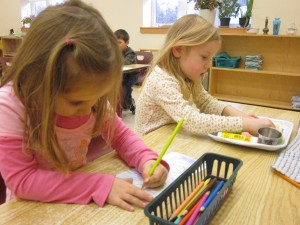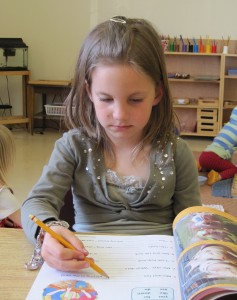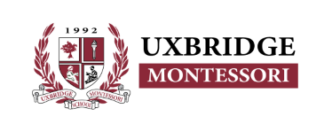 Montessori
Montessori
Our Casa Montessori Programming extends the philosophies of the Toddler Program. It is designed to provide children with a strong foundation in academic and life skills a caring and supportive “classroom family” atmosphere. Following the philosophy formulated by Dr. Maria Montessori, the “Montessori Method” recognizes that education during the formative years is absolutely crucial to a child’s development and future success. Dr. Montessori observed that children absorb knowledge from all aspects of the world around them. During these formative years, every child has an inherent urge to learn. In order to foster this spontaneous desire for knowledge, Dr. Montessori suggested the creation of a specially “prepared environment” offering child-size furniture, manipulative and hand-held objects. To help children learn through their senses, all classroom items are richly textured and aesthetically pleasing; children are encouraged to touch, taste, smell, listen to and observe their surroundings. Through the educational activities, children develop independence, movement skills and language abilities during a critical developmental time for these capacities. Our highly trained Casa teachers make every effort to fulfill each child’s natural desire to learn. They engage all of the child’s senses to allow them to absorb their surroundings and guide their interactions for constant learning and development through ongoing exploration. Through interacting with their environment and each other, children learn about their world and about themselves; they develop self-confidence, self-discipline, appreciation and respect. The Pre-Casa programme provides the children with the foundation necessary for smooth integration into the Casa programme.
Arts and Crafts
The children in the Casa Program have the opportunity to explore and create masterpieces with such mediums as finger-paints, play dough, cutting and pasting on a daily basis. They are introduced to art activities each week, using a variety of materials and techniques. By providing an environment rich in the arts, children naturally engage in these purposeful activities using their imaginations and creative tendencies.
Music
Exposure to music plays a significant role in the development of the young child. Daily music circles provide each child with the opportunity for singing and movement. Children begin to use Orff instruments to create their own music, both individually and as a group.
Physical Education
Development of coordination, balance and strength is an important component of our Toddler and Casa Programs. The playroom invites children to explore and delight while developing control of their bodies. At UMS we believe that young children need to explore the outside world in order to develop their innate connection with nature. Weekly walking journeys allow the children to appreciate and care for the natural world. Children also interact with each other through organized games or free play activities on the outdoor playground equipment, guiding them to build important social skills such as teamwork and fair play.
Character Education
The Casa Program encourages students to reach their full potential in a safe, positive community setting. Developing relationships with adults and children outside of his/her own family assists the child in developing social skills, independence and self-expression. The community is based on a foundation of trust and respect where there is an atmosphere of positive self-guided discipline.
Computers
Computers are introduced to our students at an early age. Children learn basic computer operating skills and move on to more advanced skills by working on various educational software. Older Casa children are introduced to keyboarding skills by painting and illustrating short stories.
French
Our French Programme is introduced in the Casa Programme, developing the fundamentals of the French vocabulary. If children are to learn another language, it is important they start at a young age. Spoken widely around the world, French is one of Canada’s official languages. The ability to communicate in French and appreciate French culture is an important component of a well-rounded education.
